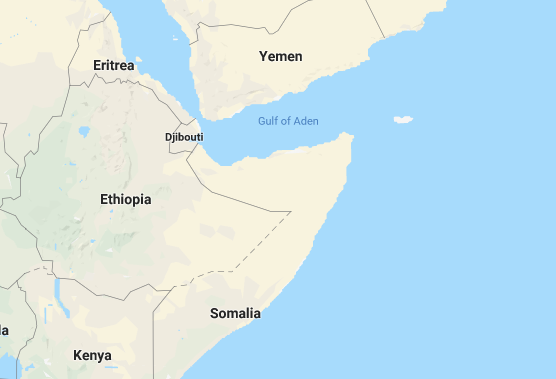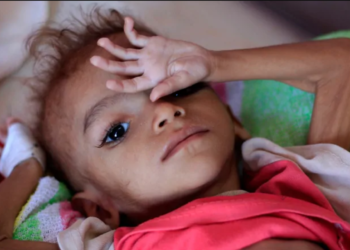Despite the ongoing war and deadly humanitarian crisis in Yemen, the International Organization for Migration is projecting a 50 percent increase in migrant arrivals there this year compared to 2017.
The total number of migrants entering Yemen is expected to be nearly 150,000 in 2018, an uptick from 2017’s total of about 100,000, the IOM said in a report issued Tuesday.
Over 90 percent of the incoming migrants are Ethiopian while the majority of the rest are Somalis, the report said.
Because of its proximity to East Africa, Yemen has historically been both an origin and destination country for migrants fleeing the continent.
The report comes as fighting continues between Yemen’s government, which is backed by a Saudi-led coalition that includes the United States, and Iranian-backed Houthi rebels.
The conflict, which began in 2015, has driven the world’s worst humanitarian crisis as Yemenis continue to face widespread famine, outbreaks of cholera and potential war crimes committed by both sides in the war.

The United Nations warned on Tuesday that it expects the humanitarian situation to further deteriorate in 2019 and that “severe increases” in famine are likely.
Nonetheless, poverty and persecution are leading many young Ethiopians to flee across the Gulf of Aden to Yemen with hopes of eventually reaching Saudi Arabia or other more stable countries from there.
“These migrants dream of a better life for themselves and their families … and most are too young to understand the difficulties ahead,” said Mohammed Abdiker, the IOM’s Director of Operations and Emergencies.
“Instead, they face risk and abuse on the way, including human trafficking. Most who make it to Yemen then find themselves stuck in a conflict, exposed to further violence and danger.”
An estimated 20 percent of the migrants coming into Yemen from East Africa are minors, many of whom are unaccompanied.
The U.N. published a report on Tuesday describing a bleak humanitarian outlook for 2019. An estimated 132 million people will be in need of humanitarian assistance next year as conflict continues to be the primary driver of needs.
On Wednesday, the IOM will convene leaders from seven regional countries – Djibouti, Egypt, Ethiopia, Saudi Arabia, Kuwait, Somalia, and Yemen – to discuss how to better manage migratory flows and protect migrants.
US Senate to Vote on Yemen War as Near-Apocalyptic Disaster There Looms























